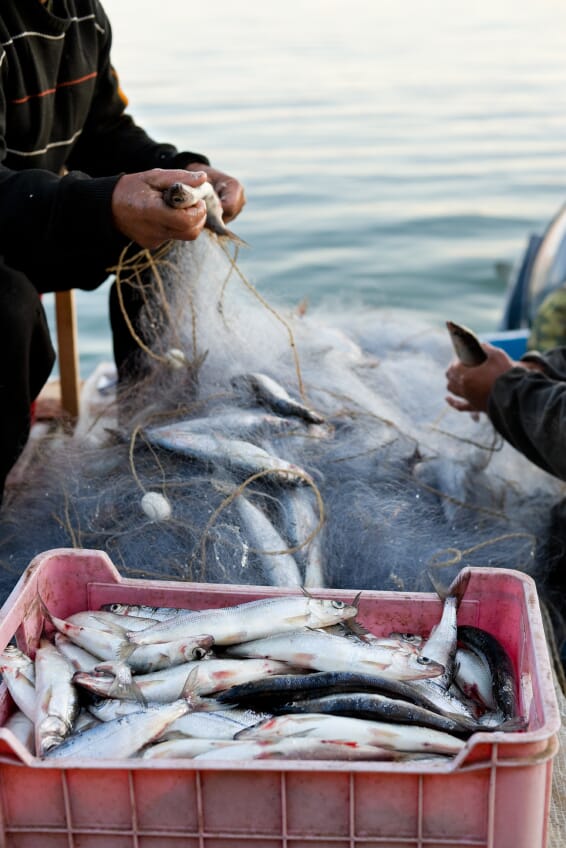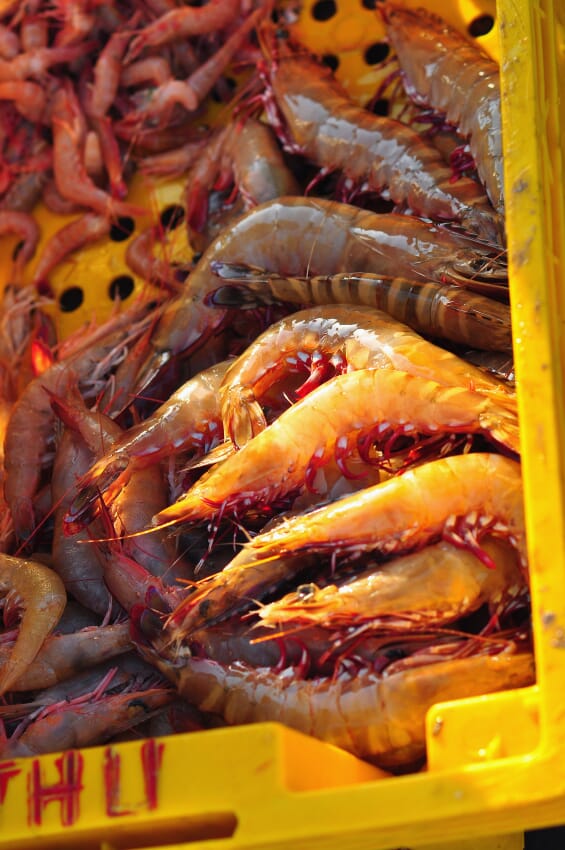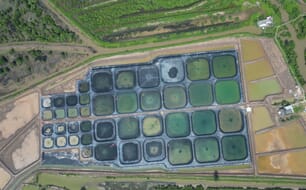At present full data and information about 48 per cent of the European fish stocks is not fully known or understood.
The president of Europêche, Secretary General of CEPESC and Chairman of the European Fisheries Technology Platform, Javier Garat, (pictured) has called for more research and support for the study of the data surrounding European fish stock to improve the sustainability of the fishing industry and the sustainability of the fish around the European coasts.
Mr Garat, speaking exclusively to TheFishSite, said that a lot of information and data has been collected and researched by scientists into the European fish stock, but more needs to be done to understand all the data to help secure the future of the sector.
He said that the Common Fisheries’ Policy and the latest reforms are showing some success in managing a sustainable European fishing industry as fish stocks are increasing, particularly since 2003.
“There has been a huge decrease in mortality and increase in biomass,” Mr Garat said.
“We are going in the right direction.”
He said that the policy of using a maximum sustainable yield which allows for the largest catch to be taken year on year without a depleting fish stock was starting to show measurable improvements and for that reason it was a good measure.
He said that the scientists were doing their best to measure and define stocks, but it is a difficult task to draw to a measure for total stocks while at the same time protecting some fish species such a shake and monkfish that are in the same fisheries as other more sustainable species.
The concept of the maximum sustainable yield is to manage fish stocks to allow larger catches and greater sustainability over the longer-term and from this year (2015) all quota species are to be managed on the basis of maximum sustainable yields.
Mr Garat said that the fishing industry has been working closely with the scientists in order to ensure the right legal limits for the maximum sustainable yields.
He said that while it would be ideal to define these limits by looking at the overall biomass and biomass maximum sustainable yields, in practice this is not possible as the total biomass is impossible to calculate and the limits have to be defined according to the mortality and the fished maximum sustainable yields (FMSY).
He said that to determine the total biomass other outside elements including climate change and fish movements have to be taken into consideration.
“From a management point of view it is easier to decide the FMSY,” he said.
“The scientists are trying to do their, but it is not always easy to find the BMSY.”
Mr Garat said that in the reforms of the Common Fisheries Policy, the use of regionalisation played an important role as it is now impossible to have a one size fits all policy for all the waters of the European Union.
.jpg)
Benefits from Regionalisation
The regionalisation policy allows individual countries and fisheries to tailor their fisheries management to local conditions.
He said there should not be concerns over possible discrimination, as the quotas that had been set back in the 1970s through the Hague Preferences as a percentage of the total allowable catch.
Regionalisation, he said, should allow for the correct measures to be established. The only exceptions that have been made have been for countries such as the UK and Denmark, which received some advantages because of the loss of some of their fishing zones.
Mr Garat said that it was impossible to separate the roles played by the small boats in the fishing fleets and the larger vessels. The larger vessels have not become a threat to the smaller boats or the communities that depend on them.
“The smaller boats rely on the larger boats to keep going,” he said.
Without the larger vessels, he said, the harbours would not be sustainable and the communities that depend on those harbours would suffer.
He said: “In Spain, for example, where production is about 950,000 tonnes from more than 9,000 vessels, most of these are small scale vessels.”
The Spanish fishing fleet in 2014 was 9,600 vessels with 9,300 inside national waters taking 41 per cent of the catch. Mr Garat said that of the 9,300 vessels 7,400 are small scale and these fished 15.75 per cent of the catch – 150,000 tonnes.
He said that the 130 vessels that fish in EU waters and outside EU waters take 59 per cent of the catch.
“If these vessels disappear it will reduce the catch by more than 50 per cent. Imagine how many harbours would disappear and how it would affect those communities,” Mr Garat said.
Reforms over Discards
One aspect of the reforms of the Common Fisheries’ Policy that Mr Garat said was not necessarily needed to improve fish stocks was the landing obligation.
The policy was introduced as part of the fisheries’ policy because of outcry by NGOs and the public over fishermen throwing unwanted and often dead catch back into the seas to comply with quota rules. The actions had been condemned because the fishermen were being obliged to discard fish that would otherwise be fit for human consumption. 
The landing obligation is designed to reduce the discards through quota flexibility, promoting increased selectivity and funding compliance measures.
However, Mr Garat said that the fishermen were already taking action to reduce discards.
“Fishermen have long been employing selective methods and in the last few years fishermen have been investing in research and innovations to get better catches,” Mr Garat said.
He said that the fishermen are already using larger net sizes and nets with escape panels to allow juvenile fish to escape.
He said that the size of the nets is already well regulated and these technical issues need to be review through regionalisation as it is impossible to have one rule for all regions.
“Our future will depend on it,” he said.
“The fishermen are the ones wanting sustainable returns.”
However, Mr Garat added that while the landing obligation that was introduced for pelagic fisheries has not been a problem this year, it could be in the future when it is extended to cover demersal species.
“I think we will find more problems next year with mixed fish and flat fish,” he said.
Mr Garat said that as global demand for fish grows, the aquaculture sector is going to grow in importance.
At present he said there is a balance between catch fisheries and aquaculture with production from catch fisheries stable and the good sign is that stocks are recovering.
“Aquaculture has increased a lot. Probably in a few years there will be more from aquaculture than catch fisheries,” Mr Garat said.
“The two activities are complementary.”
He said that fish are a large and important part of the human diet and as consumption is growing, production will have to grow. Stocks will have to improve and aquaculture will play an important part.
Threat from Overregulation
While fish stocks are recovering and growing and fisheries are becoming more and more sustainable, the sector is also facing some significant threat.
Mr Garat said the major threat comes from over regulation and too much red tape.
“Most important is that there are too many regulations and too many rules to comply with,” Mr Garat said.
“The EU wants simplification, but sometimes they are passing regulations that make the lives of fishermen impossible.”
He said that the politicians and the NGOs are a major threat to the future of the fishing sector because of the uninformed campaigns and fears they raise over the drop in numbers of different species.
He said that often the campaigns raised against the fishing industry were difficult to counter because they were backed by significant finance that the fishing industry could not match.
He said that often the campaigns are based on out-of-date information and do not recognise the progress that has been made.
Mr Garat said that another threat was the lack of money available to process all the data that have been gathered about the fish stocks and the sustainable levels in order to improve sustainability and the conservation of stocks.
“The NGOs are campaigning against the industry and we have to have investment from the industry. We cannot rely on governments to do the job,” he said.
“There is a lot of investment needed in management, science and research.
“The industry needs to tell the world what it is doing. People need to know what is going on.”
Concerns over Low Standard Imports
The third threat to the EU fishing sector, he said comes from cheap, unregulated imports from third countries produced at lower standards.
“The EU probably has the highest standards in the world – on everything,” he said. 
“But these are not for free. They cost a lot of money.
“We should not reduce our standards, but raise the standards of other countries.
“We need a level playing field to be competitive, but it is difficult to put in place.”
He said that the EU has the fifth largest catch fishery in the world and the seventh largest aquaculture industry in the world, but issues such as zero tariffs on quotas of some fish of a lower quality from some South East Asian fisheries were damaging the EU sector.
He said that the EU fishing industry is already doing a lot by working in and with developing countries to improve standards and introducing sustainable fishing systems in foreign waters.
The industry is also working with authorities to help fight illegal, unregulated and unreported (IUU) fishing and several joint ventures have helped to improve standards in developing regions.
He said that through a transfer of knowledge and skills and through a collaborative route working with the fishing industry in developing countries, standards are gradually improving.
Loss of Russian Market
One of the most recent difficulties that the EU fishery sector has had to overcome has been the loss of the market in Russia.
“At first it was very difficult, simply because suddenly a market was lost,” Mr Garat said.
“We suffered a lot.”
However, he said that now some fisheries have managed to find other markets while others have put catches that would otherwise have gone to Russia into store, frozen until new markets can be found.
One product that was dedicated to the Russian market was Spanish rock cod.
The fish that had once been a discard found a dedicated market in Russia and Ukraine, but with the closure of the Russian market to EU fish and the problems of exporting to Ukraine, all the rock cod are now being sent to frozen storage until the market either reopens or new markets can be found.
Mr Garat concluded that the way that problems such as this and the sustainability of the EU fishing sector can be maintained it through politicians and scientists working with the industry.
He said that more knowledge about the stocks needs to be gathered and analysed.
“We need to be working with our own government, the EU, the European Commission and scientists,” he said.




